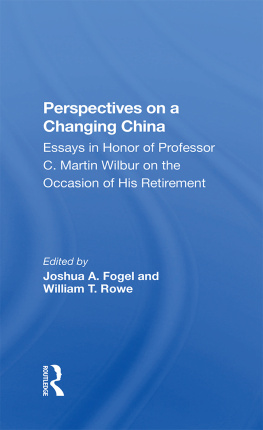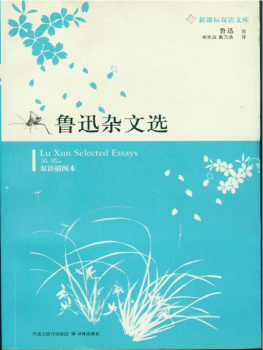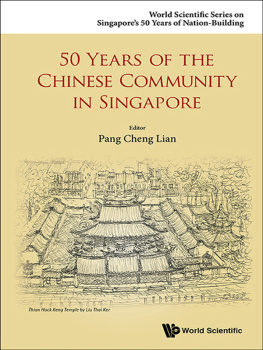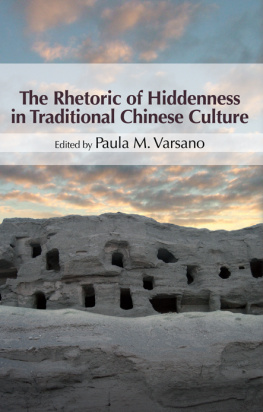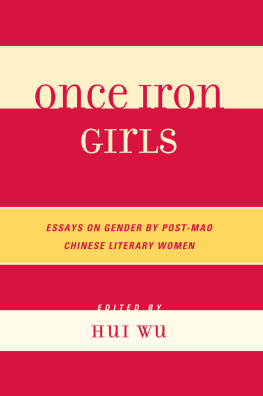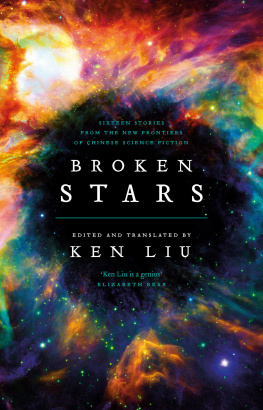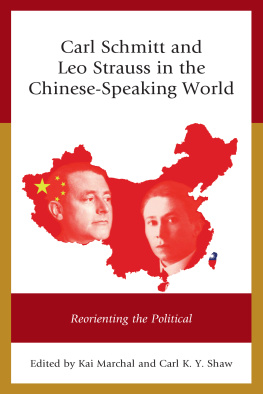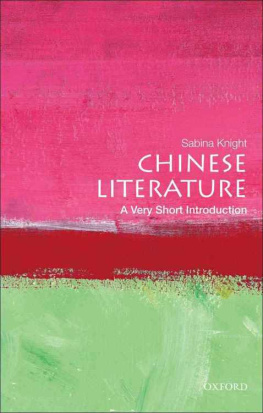Chinese Literature and Culture
ISSN 2332-4287 (print); ISSN 2334-1122 (online) www.clcjournal.com
Chinese Literature and Culture Volume 13
Editor-in-Chief: Chu Dongwei, Guangdong University of Foreign Studies Volume editor: Timothy Huson, Guangdong University of Foreign Studies Copyright 2018 Chinese Literature and Culture through Chu Dongwei.
All rights reserved. No part of this book, which is meanwhile a Chinese Literatureand Culture volume, may be used or reproduced by any means, graphic, electronic, or mechanical, including photocopying, recording, taping or by any information storage retrieval system without the written permission of Chinese Literature andCulture represented by Chu Dongwei except in the case of brief quotations embodied in critical articles and reviews.
New Leaves books and Chinese Literature and Culture volumes may be ordered through booksellers or by contacting:
GLOBAL PURCHASING & SUBSCRIPTION
New Leaves Arts & Letters Lab
Guangzhou Zilin Cultural Development Limited No. 5 Jinxierjie, Flat 211, Huaduqu, Guangzhou, 510890, China Email: zilinltd@icloud.com; editor@clcjournal.com The views expressed in this work are solely those of the authors and do not necessarily reflect the views of the publishers, and the publishers hereby disclaim any responsibility for them.
Jointly published in the United States and globally by IntLingo Inc. , Westbury, New York & Zilin Limited, Guangzhou. NEW LEAVES is a US imprint and trademark of Zilin Cultural Development Company Limited, Guangzhou.
PLEASE CONNECT WITH Chinese Literature and Culture ON FACEBOOK: http://www.facebook.com/clcjournal
ISSN 2332-4287 (print)
ISSN 2334-1122 (online)
Chinese Literature and Culture
Editor-in-Chief
Chu Dongwei
Guangdong University of Foreign Studies
New Leaves
IntLingo, Inc., Westbury, New York
Zilin Limited, Guangzhou
Volume 13
VOLUME EDITOR
Timothy Huson
ASSOCIATE EDITORS
Craig Gal up
Zhou Shengjie
CONTRIBUTORS
Yu Hua
Chen Jiyi
Yan Xi Zao
Klaus Vieweg
Kevin Nan Gan
Pang Huanyi
Lu Wei
Zhuang Jiamin
Li Huiyin
Tom Hoy
Timothy Huson
COVOR ART
(Secret Aroma of Pinky Cheeks)
Chen Zhixiong
Table of Contents
Introduction to Volume Thirteen Culture and Nature, Individual and Community .............................................. 7
A Note on the Translations ................................................... 14
A Note from Assistant Editor Zhou Shengjie ....................... 16
Chinese Stories in Translation .............................................. 18
In Company with a Depression Sufferer, by Chen Jiyi, (translators: Zhou Shengjie, Liu Zhiting, Timothy Huson) .................................................................... 19
Death, Illusion, and Reality in Chen Jiyi's In Company With a Depression Sufferer, by Timothy Huson . 58
A Long Journey from Home at Eighteen, by Yu Hua (translators: Zhou Shengjie, Zhang Yu, Timothy Huson) .................................................................... 81
Life's Lessons in Yu Hua's A Long Journey From Home at Eighteen, by Pang Huanyi ................................ 95
Buried in Peace, by Yan Xi Zao (translators: Tan Chunli and Timothy Huson) .............................. 104
..................................................................... 120
The Circle: a Review of Yan Xi Zao's Buried in Peace, by Lu Wei ............................................. 132
Auto-Biographical Essays ................................................... 136
Self-analysis, by Zhuang Jiamin ..................................137
My Childhood, by Li Huiyin ........................................156
Poetry ...................................................................................164
Know Now, by Tom Hoy .............................................165
Essays on Chinese Culture ..................................................167
The Expressivity of Chinese Instrumental Music, by Kevin Nan Gan .....................................................168
The Taint of Determinateness The East and Buddhism from the Perspective of Hegel, by Klaus Vieweg ......................................................183
Inner Enlightenment, Literature, and Literary Translation, by Timothy Huson .........................211
Contributors (in alphabetical order) .............................244
Editorial Board .............................................................246
Subscription and Purchase Information .......................248
Introduction to Volume Thirteen Culture and Nature, Individual and Community
In today's West, culture is often opposed to nature, individual to community. This stands in contrast to Chinese thought where, under normal conditions, these pairs are not in opposition, but rather are complementary to each other. The standard Western academic view of Chinese culture as based on the community, versus the West as based on the individual, already betrays the problem: the very distinction is Western, not Chinese. The Chinese individual is loftier than that of the Western academic's selfish rationalism going back to Hobbes, to escape the self-centered war of all against all only in virtue of reason. Chinese thought is the opposite, the war of all against all is against one's nature, and when individuals are properly brought up and find enlightenment within, they will understand their own nature to be substantially in harmony with the community, and with nature. Culture itself is in harmony with nature, not opposed to it. The true individual in harmony with community lives in a culture in harmony with nature. There is no need for an abstract reasoning process to overrule a selfish desire, since the education process eliminates or brings up that desire. In the Chinese context, 7
Chinese Literature and Culture Volume 13, Nov., 2018
reason is in a unity with properly educated desire. The selfish individual is simply a poorly educated individual. If abstract reason is needed to rescue him, perhaps the problem is at a deeper level. If this individual is indeed the norm in the West, and the cult of abstract reason is the required cure, maybe we should be discussing what is wrong with moral education in the West.
The word culture is itself misleading, used as it is now to refer to artifacts that humans create in distinction from what comes to be naturally. The term itself, in this usage, is of nineteenth century coinage. A term meaning culture is absent from both classical Greek thought and classical Chinese thought. They possessed what we call cultural artifacts, but never saw a need for a term to capture them as a class. Instead, the predominant focus for classical Greece and China was the human inner spirit, a moral sense, internal enlightenment that activates the inner sense of fairness and human decency.
Since it is this inner moral core of human decency that inspires the external cultural works of art, the Western idea of culture would be misleading. The essence of culture is moral education. The genus that captures things like paintings, novels, architecture, and music is not culture, but moral education, inner enlightenment.
In the context of culture as inner enlightenment through education, tradition and continuity with the past become central. Human virtue is not an abstract logical formula, but an acquisition prepared for by thousands of years of human thought, the layering of ideals of human goodness into human institutions. Nature is not the antithesis of culture, but its inspiration, the prototype of humanity that is sublated, in the sense we find in Klaus Vieweg's essay, in the process of cultural development, the construction of institutions to educate, to bring about inner enlightenment. Culture changes nature, corrects it, but does not oppose it. In his
Next page

